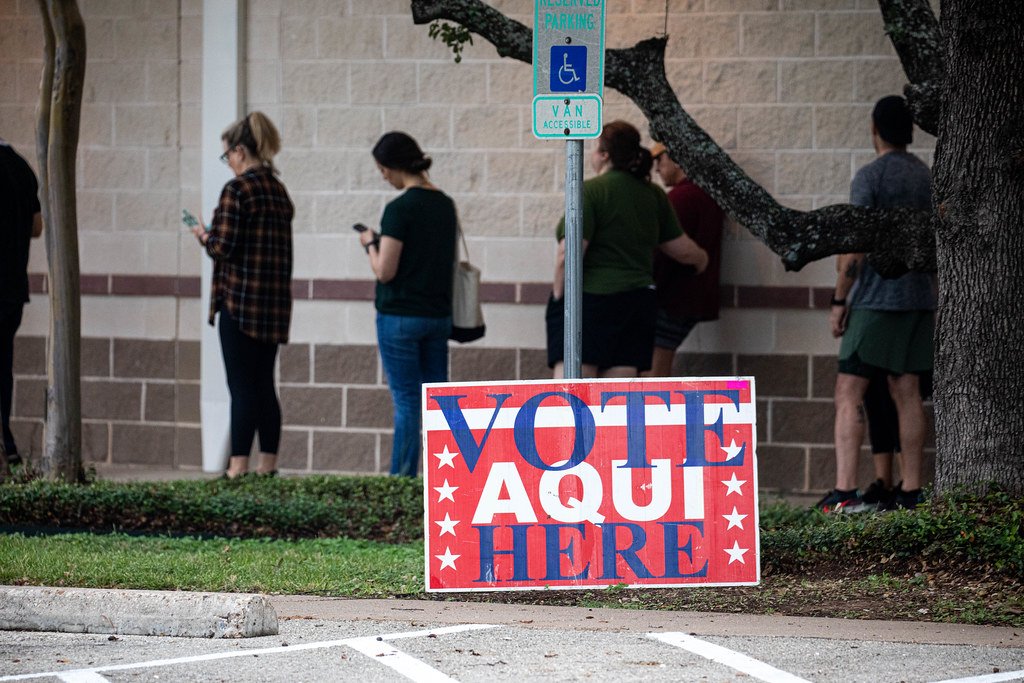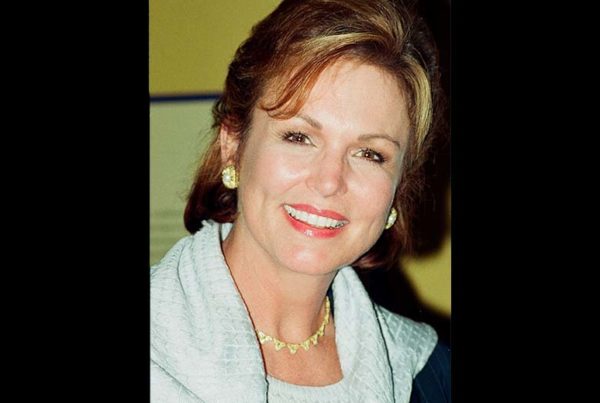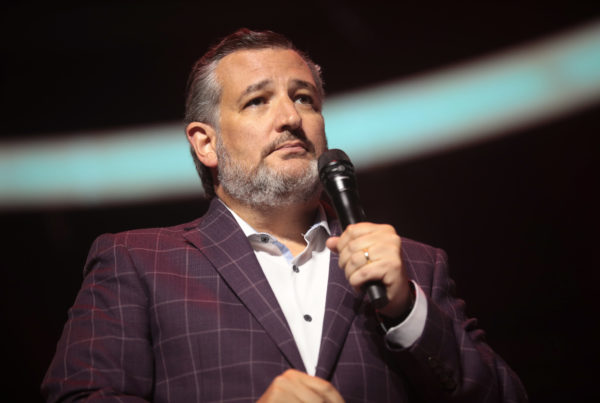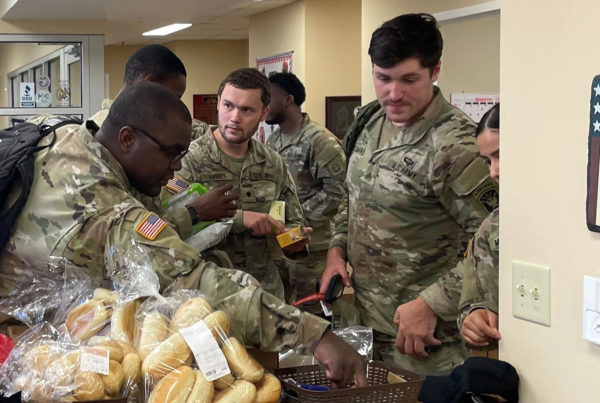Leading up to Election Day the news was full of stories about the problems that had beset county election administrators.
After President Donald Trump denied the results of the 2020 election, election denial became a powerful right-wing narrative. Many election offices were flooded with calls, record requests and threats by folks who believed that the results were rigged.
On Election Day itself, however, the process of actually casting votes this year was fairly smooth in most parts of Texas. Trudy Hancock, the election administrator for Brazos County and president of the Texas Association of Elections Administrators, spoke to the Texas Standard about adapting to new challenges during election season.
This transcript has been edited lightly for clarity:
Texas Standard: What were your major concerns going into Election Day? I know that a lot of election officials statewide had decided they were not going to be a part of this election cycle. Could you say a little bit more?
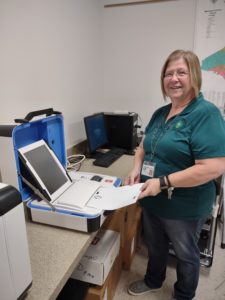
“Elections administration is not politics. The elections administration is our laws and rules … Politics are messy, emotional things; elections are not,” says Trudy Hancock, the election administrator for Brazos County and president of the Texas Association of Elections Administrators.
Photo courtesy Trudy Hancock
Trudy Hancock: For Brazos County going into this election, we wanted to just be adequately staffed, have enough equipment, so that our voters had a good experience at the polling place. You know, a lot of young people – if it’s hard or things like that, then that causes them not to want to come back and vote again.
How smoothly did things happen in Brazos County, and can you talk a little bit more about what you heard from some of your colleagues in other parts of the state?
In Brazos County, things went pretty smooth. We did have one location that opened just a little bit late just because of some technical difficulties with the equipment, but once we got them going, everything went smooth. We had a really good turnout that day, and most of our locations were pretty steady – pretty busy. Most of our locations did have poll watchers, but most of our poll watchers here in Brazos County were very respectful. But I did hear from some counties that they did have some poll watchers that gave them some problems.
What kind of problems?
Well, you know, they have certain rules. Like, they can’t talk to the voters. They’re not supposed to disrupt the flow of your election, you know – checking people in and things like that – and sometimes the poll watcher will get overenthusiastic and want to start telling the workers things that they’re doing wrong or things that they perceive that they’re doing wrong, maybe because they don’t understand the procedure. And so I do know that we did have a couple of counties that I’m friends with that did have some concerns about some of their poll watchers.
How have you and your colleagues around the state had to adapt over the past few years as elections themselves have become a more fraught and socially, politically charged process?
It has been. A lot of people tell me they can’t believe that I, you know, enjoy politics, and I tell them elections administration is not politics. The elections administration is our laws and rules and their elections. Politics are messy, emotional things; elections are not. So, yes, we’ve had to adapt quite a bit between 2020 being COVID and then going into the ‘22 with all the conspiracy theories and, you know, the talk of things not being done legitimately or with the integrity that it needs to be done.
I feel, personally, here in Texas, we run very smooth, very integrity-based election cycles. We have lots of checks and balances. Some are mandated by the state, and some are just best practices that we’ve put in place ourselves just to be a correct reflection of what’s happened in that election.
I mentioned at the start of our conversation that by and large, the consensus was that elections went smoothly. What do you think worked right? Was there something that election administrators did that restored confidence? Was it that expectations had just been ramped up to a point where a lot of people were on edge?
I do hope that we were able to help people see that we do run elections with integrity and to help squash some of those naysayers by giving them, you know, the reports that they need to prove to themselves – not just to us – and people that they talk with that we are running smooth elections with the security that needs to be in place to ensure that everything is counted properly. We want to be sure that every person that qualifies, gets to vote and that that vote counts.
Newly elected state lawmakers have already started to file bills for the next legislative session, and I’m wondering if there’s anything that, if you had their ear, you could say, “Here is an obstacle; here’s an issue that we need to iron out for the next go-around” – what would you tell them?
We do have some things that TAEA is looking to meet with legislators on in this next session – some of it cleaning up some of the changes that were put in place by SB 1. We saw some good things come out of SB 1, but some things that made it a little more difficult for some of our voters, so we hope to clean up some of that. You know, it’s a learning process and just seeing what works and what does not work and how we can make those things go smoother.
Let me ask you one other question, and forgive the personal nature of this, but we heard so much from county election officials and administrators in the run-up to the election and some people deciding, you know, “I don’t get paid enough to do this gig; this is too much” and the level of anxiety leading up to Election Day and all that. You made a choice – you decided to stick it out, and I’m wondering if you can say something about why.
I love my job. I don’t always like it. I’ve been in this field for 20 years. It’s just part of who I am, and I think most people who have been in this profession for quite a while, it becomes a part of who you are, and so we take those attacks personally because it is personal to us. And so the two weeks before the election, we start early voting. I leave my house at six in the morning and don’t get home until after eight at night, and so my husband feels like a widower, but it’s just part of who we are and the way of life for us. And so I honestly have thought at times about just walking away. But, you know, I’m here for the long haul, and I do it to serve my community and to serve the voters of this county.


